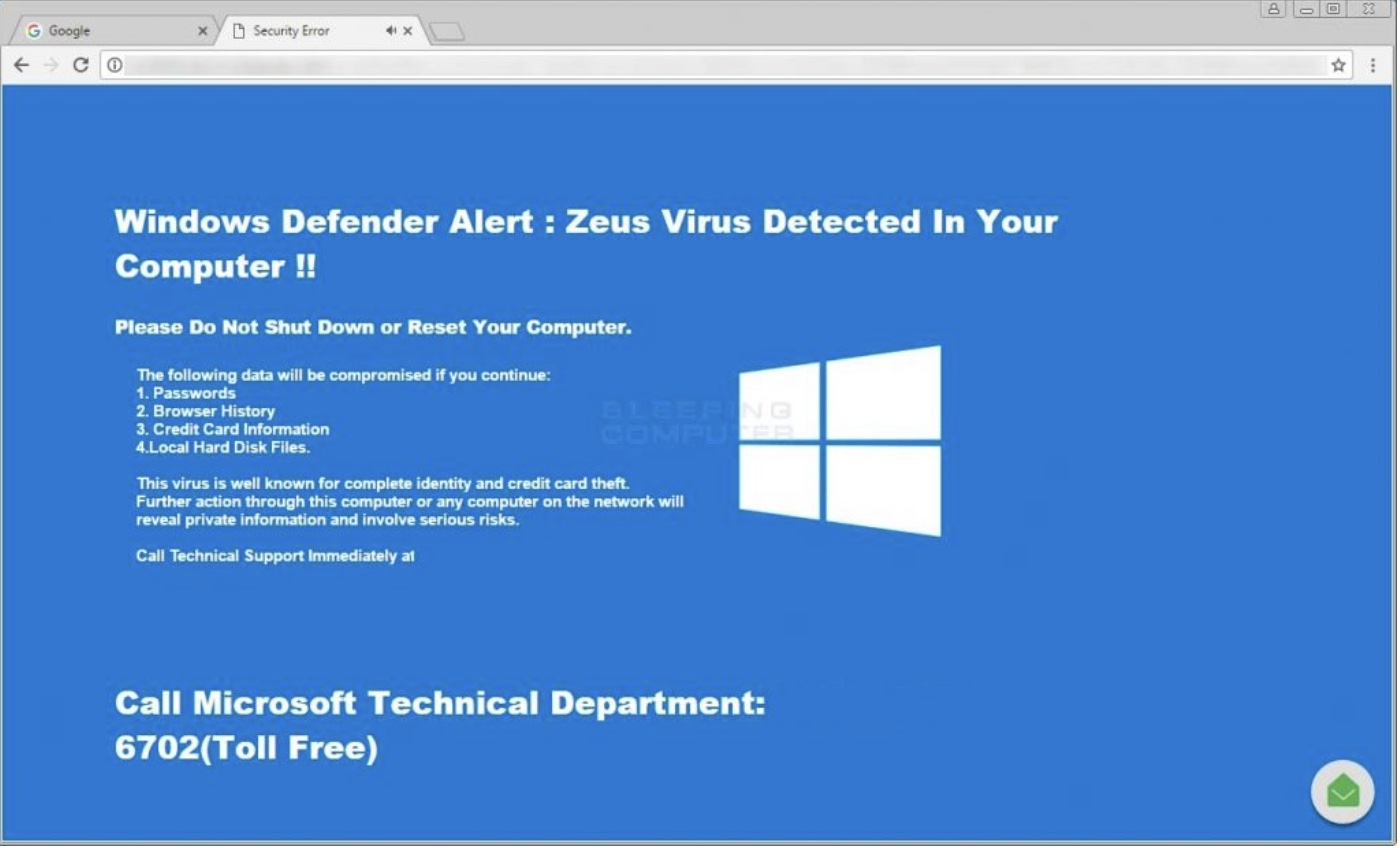
How to Protect Yourself From Tech Support Scams
March 29, 2024
By Michelle Hacker
Director of Digital Services
Imagine this: you're cruising the web, minding your own business, when suddenly a giant red warning pops up on your screen. It screams about a horrible virus infecting your computer and gives you a number to call for a superhero tech whiz to save the day. Or, a flashy pop-up offers a “free scan” to fix your device.
Here's the catch: that warning or the “free scan” is a total fake! You could end up calling someone who pretends to fight the non-existent virus, but instead charges you hundreds of dollars to “fix” a problem that isn’t even real.
Example of a Tech Support Scam
Never click or call the number on a "pop-up" window that looks like this:

Source: YourWindowsGuide.com
Unless you have made prior arrangements, Microsoft, Apple or any other IT company will not call you out of the blue or send a random pop-up to your device to fix a problem.
But wait, it gets even crazier. The Federal Trade Commission (FTC) warned recently that some tech support scammers are starting to level up their game.
New Technique: Tech Support Impostor Scams
Now instead of pretending to be a tech support company, tech scammers are switching tactics. They will pose as a “tech professional” from the government or your bank and hit you with a warning claiming someone hacked your bank account, investment portfolio, or even your retirement savings. They'll pressure you to call a number for "immediate help."
Here's the twist: on the other end might be another scammer pretending to be from a trusted source, like the FBI or your bank's fraud department. They'll claim the only way to save your money is to transfer it to a "secure" new account. Big red flag! That account is actually controlled by the scammer, who will steal your money in a flash.
How to Avoid Tech Support Scams:
According to the FTC, here are the best ways to avoid falling victim to a tech support scam:
- Never call a number on a security pop-up warning. Pop-ups that tell you to call tech support are always scams.
- Never move or transfer your money to “protect it.” Only a scammer will tell you to do that.
- Never give someone a verification code to log in to your account. Scammers want it to get into your account.
- Contact your real bank if you’re worried. And use a phone number you know is real. Any legitimate company has its real support number listed on its official website.
Was this article helpful?
Subscribe to our monthly newsletter to stay updated on the latest scams and ways to avoid them. If you feel like you have been targeted by a tech support scam, contact us or report it to the FTC.